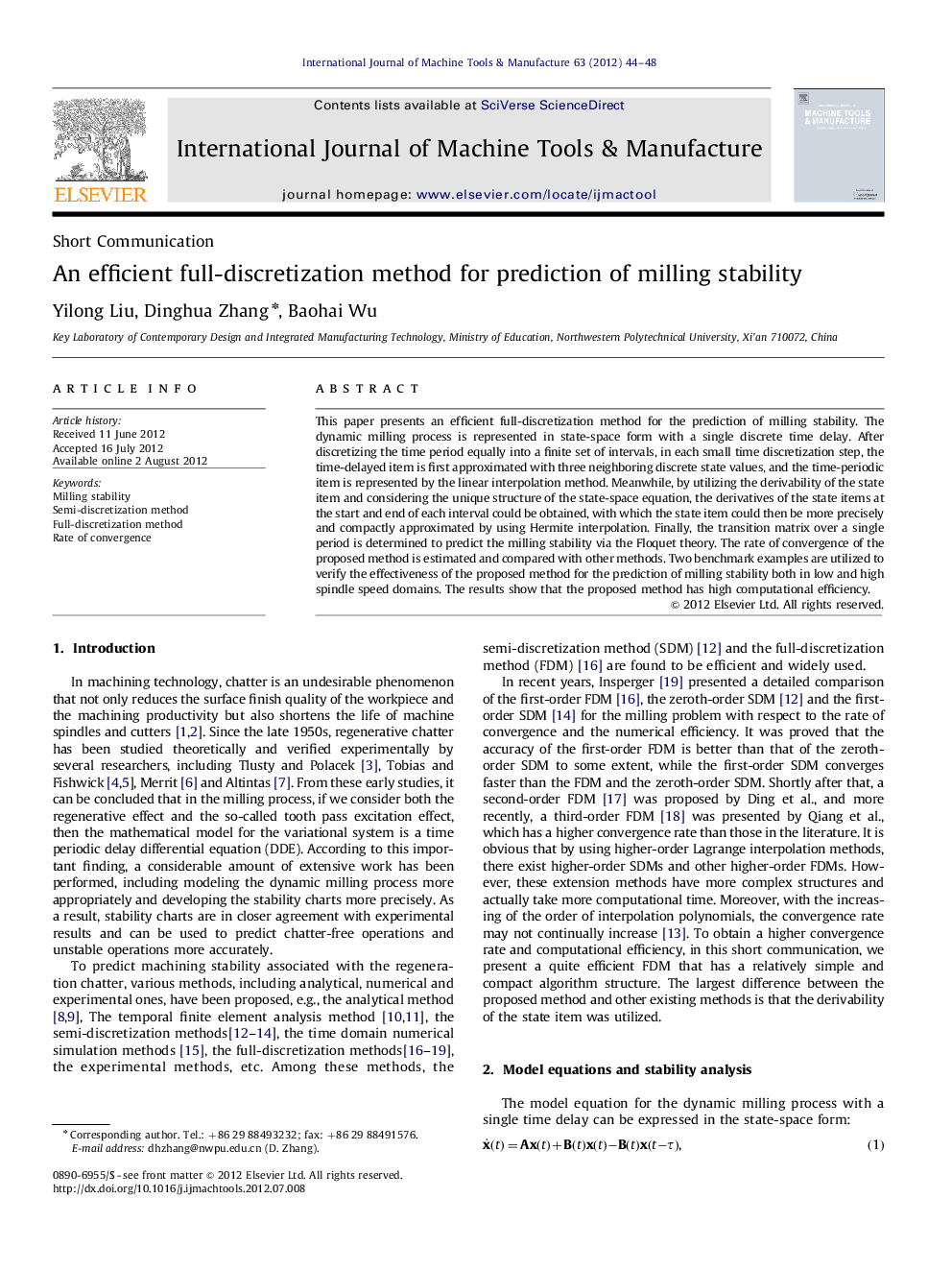| Article ID | Journal | Published Year | Pages | File Type |
|---|---|---|---|---|
| 780755 | International Journal of Machine Tools and Manufacture | 2012 | 5 Pages |
This paper presents an efficient full-discretization method for the prediction of milling stability. The dynamic milling process is represented in state-space form with a single discrete time delay. After discretizing the time period equally into a finite set of intervals, in each small time discretization step, the time-delayed item is first approximated with three neighboring discrete state values, and the time-periodic item is represented by the linear interpolation method. Meanwhile, by utilizing the derivability of the state item and considering the unique structure of the state-space equation, the derivatives of the state items at the start and end of each interval could be obtained, with which the state item could then be more precisely and compactly approximated by using Hermite interpolation. Finally, the transition matrix over a single period is determined to predict the milling stability via the Floquet theory. The rate of convergence of the proposed method is estimated and compared with other methods. Two benchmark examples are utilized to verify the effectiveness of the proposed method for the prediction of milling stability both in low and high spindle speed domains. The results show that the proposed method has high computational efficiency.
► The derivability of the state item was utilized to improve the prediction accuracy. ► The convergence rate of the proposed method is faster than other methods. ► Stability charts determined by the proposed method show satisfactory results. ► The proposed full-discretization method has high computational efficiency.
